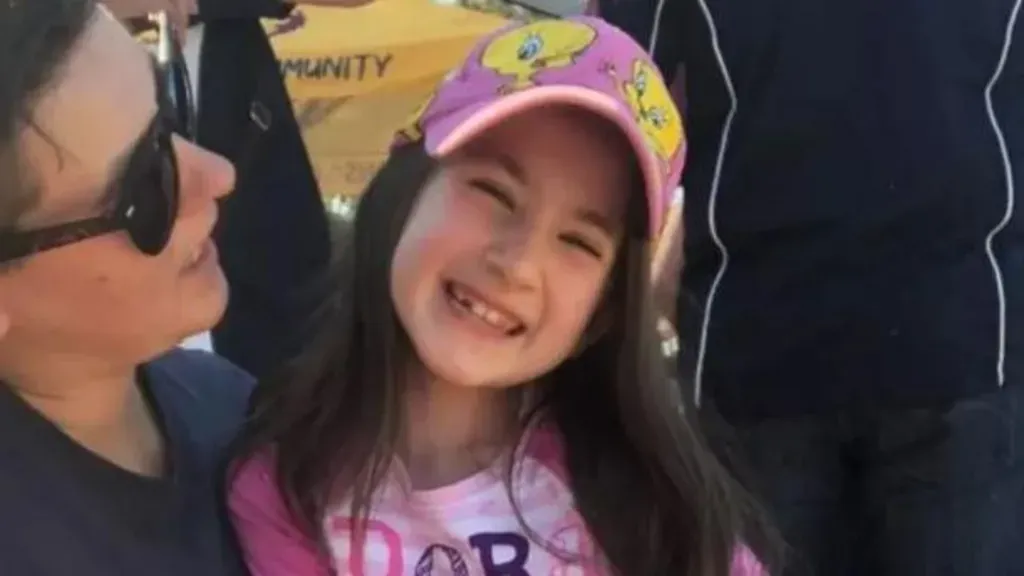Introduction
In a somber courtroom in Queensland, Australia, a heart-wrenching trial is unfolding that brings to light a tragic intersection of religious belief and medical neglect. The case revolves around the death of an eight-year-old girl, Elizabeth Struhs, whose tragic demise in January 2022 has sparked outrage and deep sorrow. This article delves into the details of the trial, the circumstances leading up to Elizabeth’s death, and the broader implications of the case on the intersection of faith and medical care.
The Case Unfolds: A Community in Court
The trial commenced with a gravity that befits its seriousness. In the Queensland Supreme Court, members of a religious group face charges related to the death of Elizabeth Struhs, who passed away under harrowing circumstances. The courtroom was meticulously arranged to accommodate the 14 defendants, all of whom have opted not to have legal representation and have not entered formal pleas. The absence of pleas is treated as a not guilty stance by the court, setting the stage for a complex legal battle.
The Accused and Their Charges
Among the accused are Elizabeth’s father, Jason Struhs, aged 52, and Brendan Stevens, the leader of the religious sect, aged 62. Both men face murder charges. Prosecutors allege that they were fully aware that their actions—or lack thereof—would likely lead to Elizabeth’s death. Elizabeth’s mother, Kerrie Struhs, 49, her brother Zachary Struhs, 21, and ten other members of the group, aged between 22 and 67, are charged with manslaughter.
The trial is being conducted without a jury due to the case’s complexity and the significant public interest it has generated. It is expected to run for approximately three months, and Justice Martin Burn will preside over the proceedings.
The Tragic Events Leading Up to Elizabeth’s Death
A Dire Decision
Prosecutor Caroline Marco opened the case with a poignant portrayal of Elizabeth Struhs. Described as an “intelligent, spiritual child,” Elizabeth was nonetheless too young to grasp the severe consequences of her parents’ decisions. The prosecution alleges that, in early January 2022, Elizabeth’s parents made the fateful decision to reduce her insulin intake and eventually stop it altogether.
Members of the sect, instead of seeking medical help, gathered at the Struhs family home to offer prayers for Elizabeth. It was reportedly apparent to those who witnessed her condition that Elizabeth’s health was in jeopardy. However, no attempt was made to seek medical intervention. Elizabeth’s condition deteriorated over several days, leading to her tragic death.
A History of Neglect
The court also heard that Kerrie Struhs had only recently been released from prison before Elizabeth’s death. She had previously been convicted for failing to provide insulin to her daughter in 2019. On that occasion, Elizabeth spent a month in the hospital before medical intervention was sought by her father, Jason Struhs.
Jason Struhs had initially resisted the sect’s beliefs but ultimately joined them to preserve his family life. Prosecutor Marco highlighted that he had been baptized into the sect during his wife’s imprisonment, indicating a significant shift in his personal convictions. This shift was reportedly motivated by the desire to maintain his family and marriage rather than genuine religious belief.
The Role of Faith and Community in the Tragedy
The Sect’s Beliefs and Practices
The religious group at the center of this trial is described as small and insular, with its beliefs centered around the teachings of Brendan Stevens. The sect rejected conventional medical practices, placing their faith in divine intervention instead. This belief system played a central role in the decisions made regarding Elizabeth’s care, leading to her untimely death.
The trial will involve testimonies from around 60 witnesses, including one of the Struhs’ estranged daughters. These testimonies are expected to shed light on the inner workings of the sect and the influence of Stevens’ teachings on the community’s decisions.
The Broader Implications
The case highlights the complex issue of faith-based medical neglect. It raises critical questions about the extent to which religious beliefs should influence decisions regarding medical care, especially when the health and lives of vulnerable individuals, such as children, are at stake. The tragic death of Elizabeth Struhs serves as a somber reminder of the potential consequences of placing religious convictions above medical necessity.
Justice and Legal Proceedings
The Trial Process
As the trial proceeds, the focus will be on uncovering the full extent of the defendants’ actions and motivations. Prosecutors will continue to build their case, presenting evidence and witness testimonies that outline the sequence of events leading up to Elizabeth’s death. The defendants will also have the opportunity to present their side of the story.
Justice Martin Burn has emphasized the importance of ensuring a fair trial for all parties involved. While he is tasked with providing a comprehensive legal process, he cannot offer legal advice to the defendants. This underscores the complexity of the case and the careful attention required to balance justice with the defendants’ rights.
Community Reactions
The case has elicited strong reactions from the public and the community. The death of Elizabeth Struhs has sparked widespread outrage and grief, highlighting the need for ongoing discussions about the intersection of faith and medical care. It also underscores the importance of safeguarding children’s health and ensuring that their well-being is prioritized over religious or personal beliefs.
Conclusion
The trial of the Struhs family and their religious associates is a deeply emotional and complex legal proceeding. It brings to light the tragic consequences of placing faith above medical care and serves as a stark reminder of the need for vigilance in protecting vulnerable individuals. As the trial continues, the court will seek to uncover the truth behind Elizabeth Struhs’ death and hold those responsible accountable for their actions. This case will undoubtedly have lasting implications for discussions on faith, medicine, and child protection.


